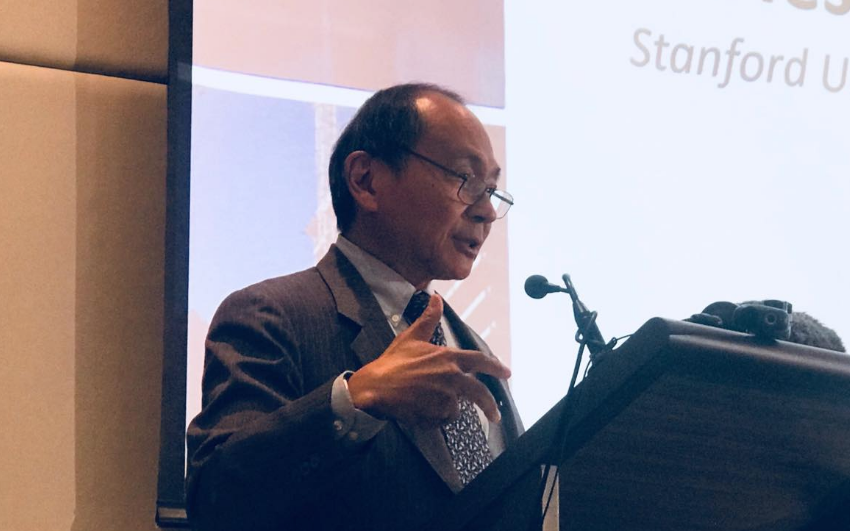
Photo Gallery | 179877 Views | May 06,2019
Jun 11 , 2019

Francis Fukuyama, professor at Stanford University and a renowned thinker in development and international politics, is in Addis Abeba today giving public lecture at the Hyatte Regency Hotel.
Francis Fukuyama, professor at Stanford University and a renowned thinker in development and international politics, is in Addis Abeba today giving public lecture at the Hyatte Regency Hotel.
He speaks on how to manage politics in economic transition and the triumphs as well as tribulation of the developmental state.
He began his talk noting how he was astonished to read "a very sophisticated" criticism of the neo-liberal political economic model by the late Meles Zenawi, who he thought had a background as a commander of a rebel army.
Unlike the Asian countries that have tried the developmental state model, Fukuyama, observed Ethiopia did not have a robust private sector which led to lack of partnership with the public sector; it lacked competent and strong bureaucracy that the "civil service in Ethiopia was not about quality"; the relationship with China where due diligence has been lacking on their investments which led to over indebtedness; the global context makes it more difficult now than in the past to break into the international market, causing premature deindustrialisation; and the challenge of building nation and a state that "there has not been a shared feeling of common identity where national identity is contested."
Before taking off to see Prime Minister Abiy Ahmed (PhD), without taking questions from the audience, Fukuyama made his verdict that developmental state model is an unlikely path for Ethiopia, a country that lacks strong private sector, competent bureaucracy, common identity and democracy.
Challenging Fukuyama's assertion, Eleni G. Medhin (PhD), an economist who was active building commodities exchange during the earlier years of Ethiopia's developmental state, the key is not "democracy" in as much as it is allowing space for the private sector to grow and establish engagement as well as dialogue with its actors.

Photo Gallery | 179877 Views | May 06,2019

Photo Gallery | 170073 Views | Apr 26,2019

Photo Gallery | 161052 Views | Oct 06,2021

My Opinion | 137222 Views | Aug 14,2021

Nov 1 , 2025
The National Bank of Ethiopia (NBE) issued a statement two weeks ago that appeared to...

Oct 25 , 2025
The regulatory machinery is on overdrive. In only two years, no fewer than 35 new pro...

Oct 18 , 2025
The political establishment, notably the ruling party and its top brass, has become p...

Oct 11 , 2025
Ladislas Farago, a roving Associated Press (AP) correspondent, arrived in Ethiopia in...